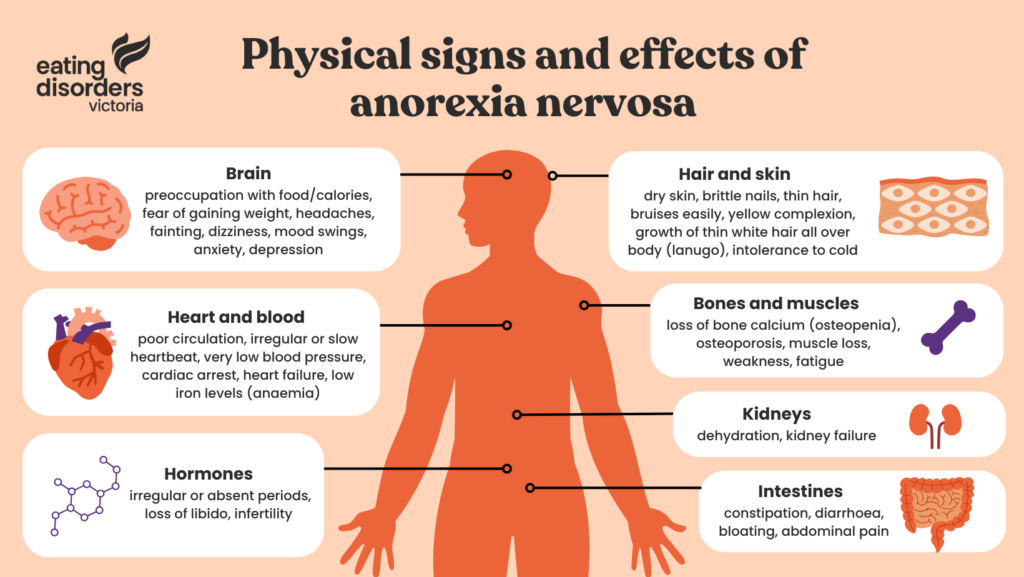Anorexia nervosa is a mental illness that has serious physical, emotional and social impacts.
Anorexia nervosa is characterised by body image distortion with an obsessive fear of gaining weight, which manifests itself through depriving the body of food. It often coincides with increased levels of exercise. When identifying anorexia nervosa, it’s important to remember that:
- Anorexia nervosa occurs in people of all genders. Men and boys are more likely to go undiagnosed because of stigma and misinformation.
- Anorexia nervosa can present differently for different people
- Anorexia nervosa impacts people in all body shapes and sizes
- Anorexia nervosa is serious and requires medical and psychological intervention
Restrictive anorexia nervosa
This is the most commonly known type of anorexia nervosa, whereby a person severely restricts their food intake. Restriction may take many forms (e.g. maintaining very low-calorie count, restricting types of food eaten, eating only one meal a day) and may follow obsessive and rigid rules (e.g. only eating food of one colour).
Binge-eating or purging anorexia nervosa
This type of anorexia nervosa forms when a person restricts their intake as above, but also has regularly engaged in binge-eating or purging behaviour (e.g. self-induced vomiting, over-exercise, misuse of laxatives, diuretics or enemas).
Atypical anorexia nervosa
This diagnosis falls under the category of eating disorders known as OSFED (Other Specified Feeding or Eating Disorders) on the basis that individuals may still experience weight loss, however their weight will not fall into a low category.
Many professionals and advocates believe that the term ‘atypical’ is unhelpful and stigmatising. Atypical anorexia nervosa is actually found to be more prevalent than ‘typical’ anorexia nervosa. People with atypical anorexia nervosa are just as likely to have worrying symptoms, such as psychological distress, low heart rate and nutritional deficiencies. It is important that those with atypical anorexia nervosa seek help, and that health professionals validate these experiences and provide appropriate treatment.

